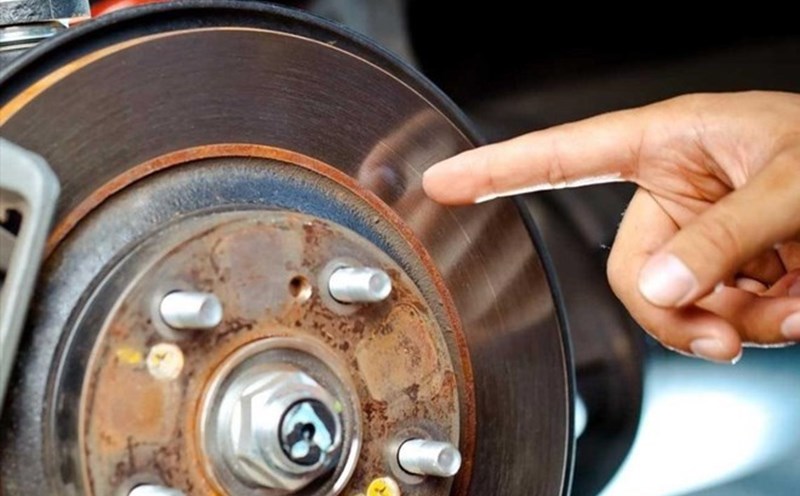What is a brake stiffness?
The brake force (also known as brake failure) is the phenomenon of the brake handle being held tightly to the brake discs or drum brake, causing the wheels to not rotate freely. This leads to difficulty in slowing down, being dragged away or possibly stopping suddenly without control. This phenomenon can occur on one or more wheels, causing danger while operating, especially in slippery road conditions or when braking urgently is needed.
Signs of stiff brakes
Unusual stiff brake pedals: Difficult to step, no normal bounce.
The vehicle does not accelerate or accelerates very slowly: Even if the brake is strong, the vehicle still swerves.
Vehicles slipping when braking: Especially easy to encounter on slippery, steep roads.
Vehicles deviate to one side when braking: Due to uneven braking forces between wheels.
Scratch, rubbing or metal shouting: issued from the braking system.
Bitter odor: Due to too much friction between the cheeks and the brake plate.
Unusually hot motorbike cake: Signs of a broken brake being tightly tied to a plate while moving.
Causes of brake stiffness
Brake: When the brake is completely worn, the metal inside will collapse directly onto the plate or drum, causing jamming and stiffness.
Brake oil leak: The leaked brake oil reduces the applied pressure, causing the brakes to not release all and leading to stiffness.
Oil pipes clog: Dilapidation or rust clogs the oil pipes, causing oil to not circulate, causing brakes to block.
Damaged mechanical parts: Damaged Piston, brake cylinders or brake aids can cause the system to operate unstably, causing stiffness.
Water enters the system: Water enters the brake, causing the brake handle to swell, trapping it to a plate or drum.
How to deal with stiff brakes
Stay calm and slow down: If you are driving, hold the steering wheel firmly, avoid speeding and slowly bring the vehicle to the side of the road safely.
Preliminary on-site inspection: After stopping the vehicle, you can check by lightly touching the wheels to feel the unusual heat or trying to push the vehicle to see if any wheels are blocked.
Do not continue operating the vehicle when suspected of being stuck in the brakes: Trying to move while the brakes are stiff can further damage the brake system, tires and related parts.
Bring the car to a reputable garage: The braking system requires high accuracy and should be inspected by a professional technician. The Gara will check the greaseproof pigs, brake pads, brake oils and other components for thorough treatment.
How to prevent brake stiffness
Regularly maintain the braking system according to the manufacturer's recommendation.
Replace the brake pads and brake oil on time.
Avoid washing your vehicle when the brakes are hot, especially after a long trip.
Do not brake suddenly or check the brakes for too long on the slope.
Check the brakes after heavy rain or wading.











